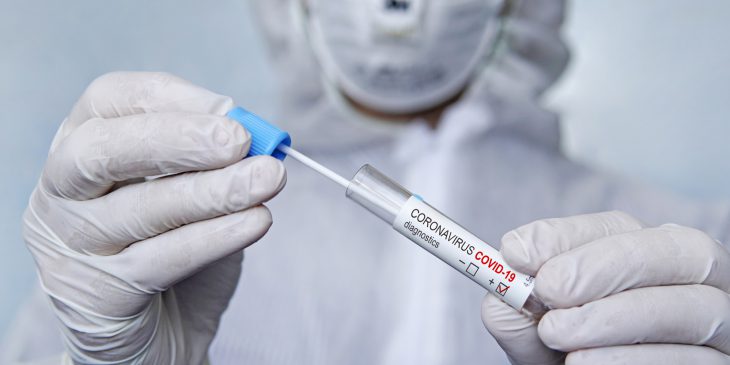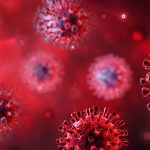The Pennsylvania Department of Health last week reported data indicating an increase in COVID-19 infections and hospitalizations among vaccinated Pennsylvanians.
The data on these breakthrough infections—relatively rare COVID-19 infections among the vaccinated population— shows that between Sept. 5 and Oct. 4, 2021, vaccinated people represented 26% of more than 135,000 new infections, and nearly 5,000 hospital admissions across the state. Between Jan. 1 and Oct. 4, 2021, 93% of COVID-19 related hospitalizations were members of the unvaccinated population.
Dr. Graham Snyder, UPMC’s medical director of infection prevention and hospital epidemiology, weighed in on why these breakthrough cases may appear to be on the rise and why numbers alone do not tell the whole story.
“As more people are receiving the COVID-19 vaccine, we are going to see a higher proportion of people getting sick, even if the vaccine is working well. It’s a mistake to look only at the percentage of vaccinated people hospitalized with COVID-19 infections and jump to conclusions about how well the vaccine is working,” explained Snyder.

Dr. Graham Snyder
As more people get vaccinated, the number of people who contract breakthrough COVID-19 infections and end up hospitalized will inevitably increase. Furthermore, the more potential exposures people have to the virus, the more chances your immune system won’t be able to protect you.
“Some may think the vaccine is not working when they hear these numbers, but it is working well when you consider the increased risks of exposure that many people are facing. People are taking fewer precautions to protect themselves and are exposing themselves more to the virus,” explained Snyder. “There are a lot of factors that matter, like if you go somewhere, are you masked? And what about the people around you? If you go to an event, how many people are at the event? And is it outside?”
The COVID-19 vaccine is intended to prevent severe infections and improve outcomes for those who do still contract breakthrough cases.
“If you are vaccinated and you get sick, your illness course will be better than if you were not vaccinated,” said Snyder. “What the vaccine does is help our bodies to prepare to respond better and faster to the virus.”
Snyder says we need to see results from larger well-designed studies to fully understand how well the COVID-19 vaccines are working—with consideration not only to how many breakthrough cases are resulting in hospitalization, but also how many vaccinated people are not being infected or hospitalized.
As we approach the fall and winter holiday season, Snyder says that staying safe as a community is a three-part plan:
- Avoid being exposed to the virus by masking when appropriate, maintaining distance from others and getting vaccinated.
- Be thoughtful of what you are doing, and how many people you are doing it with. If you are sick, get tested for COVID-19 and stay home.
- If you do get COVID-19 infection, even if you are healthy, talk to your doctor about monoclonal antibodies. This treatment works most effectively when given early.
To learn more about COVID-19 vaccines, or to schedule a vaccine appointment, click here.









